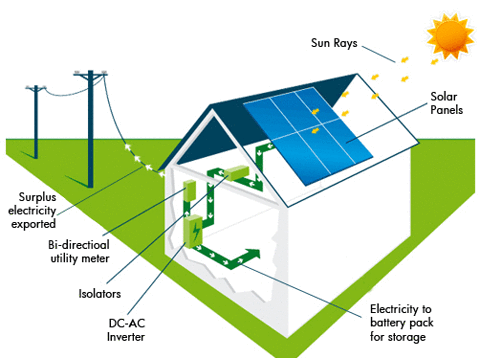Why go green? Environmentalism. Energy independence. Cutting down on the planet’s need for fossil fuels. Sustainability. Let’s face it, the benefits of renewable energy as a whole are hard to ignore. But why does it matter that you switch to an alternative form of power? It matters because renewables provide many environmental and economic benefits that can make a positive impact on your life and the lives of others.
The goal of Renewable Energy
The goal of renewable energy is to provide a sustainable source of energy that can be used to power our homes and businesses, while also helping to protect the environment. There are many benefits to switching to it, including reducing our reliance on fossil fuels, saving money on our energy bills, and creating jobs in the green economy.
Reasons for Switching to Renewable Energy
The world is facing an energy crisis. We are using up our fossil fuels at an alarming rate and they are becoming increasingly expensive. Additionally, the burning of fossil fuels is contributing to climate change. Renewable energy is a cleaner and more sustainable alternative to fossil fuels.
There are many reasons to switch to it. It is a cleaner source of energy that doesn’t contribute to climate change. Additionally, it is a more sustainable source of energy that won’t run out. Renewable energy is also becoming increasingly affordable as technology improves.
Switching to it can help solve the world’s energy crisis and slow down climate change. It is a more sustainable and environmentally friendly option that has many benefits.
Advantages of Switching?
There are many advantages of switching to it. Perhaps the most obvious benefit is that it is a cleaner and more environmentally friendly option than traditional forms of energy generation such as coal-fired power plants. Renewable energy sources also tend to be more sustainable over the long term, meaning they will not run out or become depleted as fossil fuels are expected to do.
Another key advantage of renewable energy is that it is often less expensive than traditional forms of energy. The cost of generating electricity from solar and wind power has fallen dramatically in recent years, making them much more competitive with fossil fuels. In some cases, renewable energy can even be cheaper than grid power, providing significant financial savings for households and businesses.
It also offers other benefits such as greater security of supply. Solar and wind power can be generated domestically, meaning we are less reliant on imported fossil fuels which can be subject to price fluctuations and political instability. And finally, switching to renewable energy helps create jobs in the green economy and supports the transition to a low-carbon future.
How to Switch?
There are many benefits to switching to renewable energy, including reducing your carbon footprint, saving money on energy bills, and supporting the growth of renewable energy sources. Here are a few tips on how you can switch to it:
1. Educate yourself on the different types of renewable energy sources and find out which ones are available in your area.
2. Determine how much of your current energy usage could be replaced by it. You may be surprised at how much you can save!
3. Contact your local utility company or power supplier and inquire about switching to a renewable energy source. Many companies offer green power programs that allow customers to support their growth of it.
4. Install solar panels or a small wind turbine at your home or business to generate your own electricity. Be sure to research state and federal incentives that may be available to offset the cost of installation.
5. Drive less! Reducing your reliance on transportation fuels is one of the best ways to reduce your carbon footprint and save money. Consider walking, biking, carpooling, or taking public transportation when possible.
Conclusion
There are many reasons to switch to renewable energy, but the three biggest benefits are that it’s good for the environment, it’s cheaper in the long run, and it’s a more reliable source of energy. If you’re thinking about making the switch to it, there’s no better time than now.





